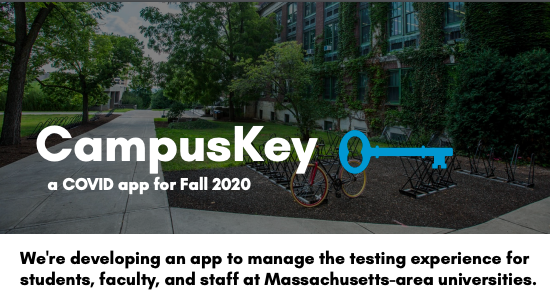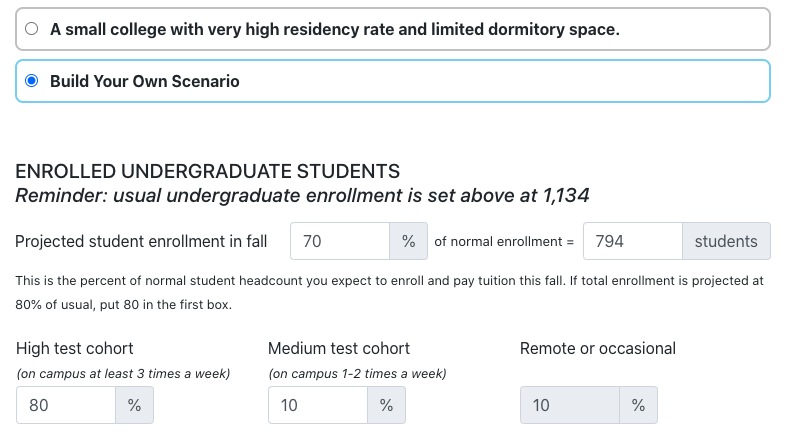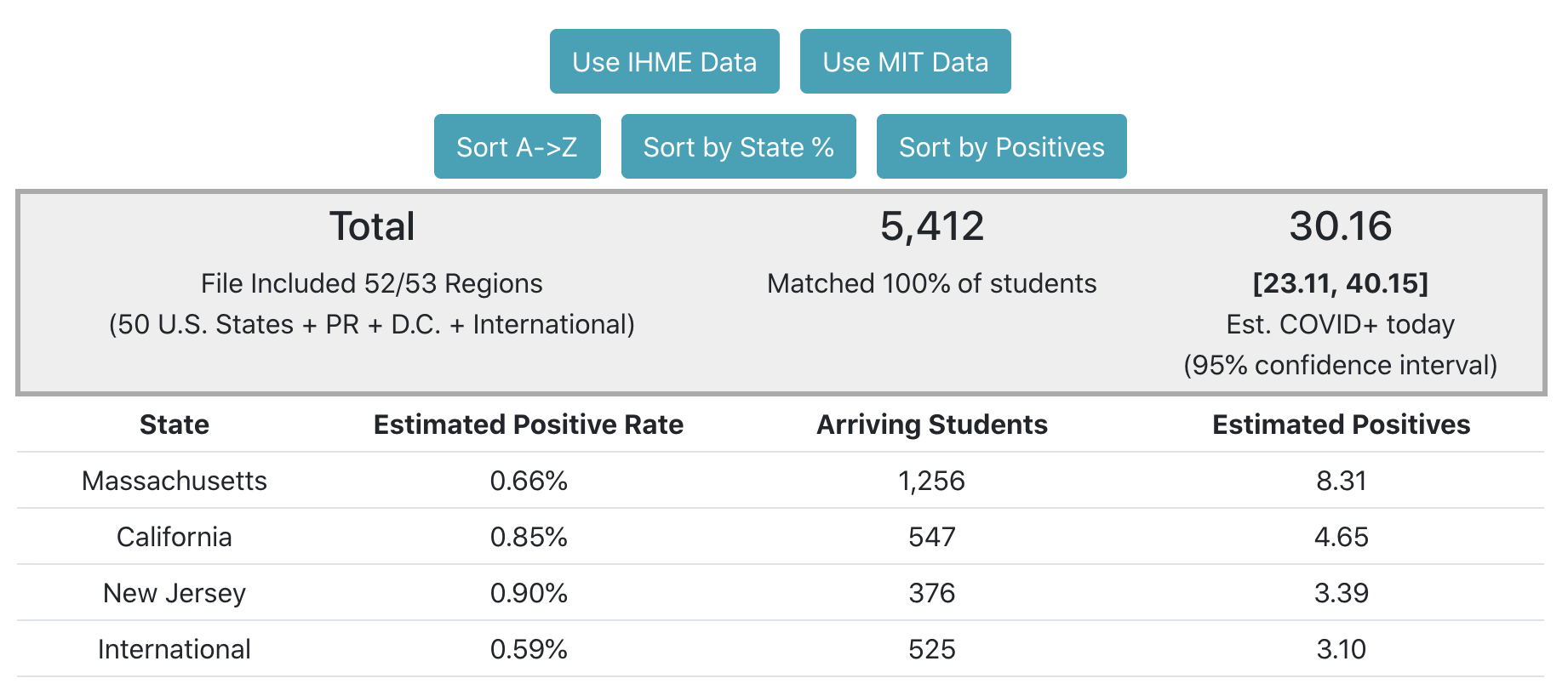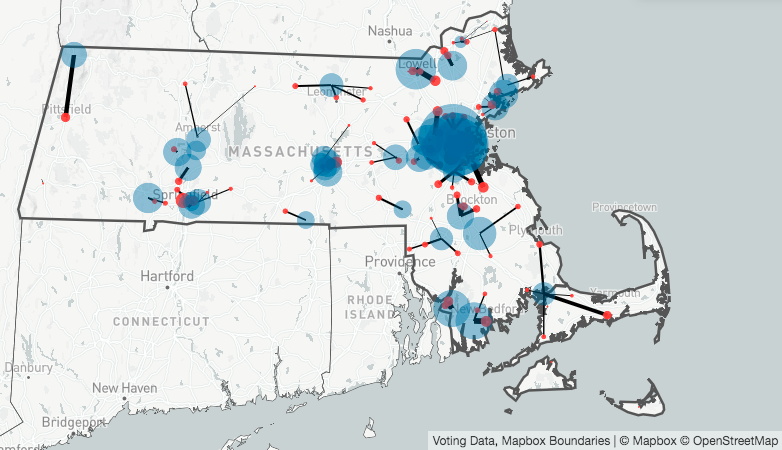At the MGGG Redistricting Lab, our team includes expertise in math modeling, geospatial data, and app development. We have a RAPID grant from the National Science Foundation to support planning related to Campus Coronavirus Response, and have launched several component projects.
Testing App for Fall 2020
Working with the Broad Institute, Tufts IT, and the Atomic Object design firm,
we’re coordinating the development of a mobile app called CampusKey. This app will serve
as a hub for users to interface with the testing regime on campus by organizing user
availability information, interfacing with our mathematical model assigning
load-balanced scheduling, providing user access to test results, and displaying
a badge indicating that the user is in compliance with their assigned testing schedule.
Read our information sheet


Testing Frequency Calculator
We mocked up a University Testing Calculator, a scenario-building tool to help university leadership arrive at plans for COVID testing cohorts and frequency for the Fall 2020 semester.
Queueing Tool
We are using models from queueing theory to simulate wait times at campus testing stations. We're offering a front-end web tool to be used by campuses to make informed decisions about setting up stations to efficiently handle expected testing load.


Incoming COVID+ Estimator
We mocked up the Incoming COVID+ Estimator, a tool to help university leadership estimate how many students will immediately test positive for COVID-19 immediately upon arrival to campus.
Spatial Match
There are numerous applications for making a travel-minimizing spatial match from hospitals and labs to college campuses. In March, we built a spatial match tool that connects hospitals to nearby college campuses. At the time, the intended use case was to relieve the bed strain on hospitals. As we plan for Fall, the same model can be used to match campuses to nearby CLIA-certified labs to do their COVID testing.

To discuss any of these projects, please reach out at contact@mggg.org or to PI Moon Duchin directly at Moon.Duchin@tufts.edu.